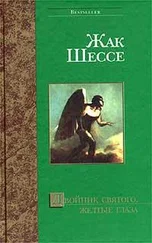On an early April morning Stephan’s parents slowly chewed and swallowed their shame dumplings and visited the school counsellor, shuffling along the main hall of Elysium Heights Secondary, past the glass-fronted trophy case filled with testaments to young male and female physical prowess, their son strutting behind them.
Stephan’s ancient grandmother, who lived in the basement suite of the family home, had been making twice-daily offerings to Kwan Yin, the Bodhisattva of compassion, on her small Buddhist shrine. Zachriel saw her that day walking along the edge of the ravine behind Arcadia Court, bending painfully to tug up freshly blooming false Solomon’s seal and collect choice pine cones. The moist-earth aroma, Zachriel said, was almost indecent. Nearby, on a dying Douglas fir, a pileated woodpecker let loose with a maniacal laugh and went back to his drumming. Stephan’s grandmother raised her tortoise face and (Zachriel swore on Bashaar’s JC Superstar script, rolled up in his back pocket) echoed that lunatic laughter right back at the bird.
What karmic justice, she might have been thinking, had led her to be a ninety-six-year-old woman traipsing through the rainforest at the edge of the world, mother to an aging son whose own child had lost all sense of filial piety?
We couldn’t help but wonder how was it that we could be drawn to an object, that a pair of sneakers dangling from a telephone wire, the rubber curling back from the heels, could break our hearts, yet we felt so little for the suffering of these parents?
That same day, Jessica’s mother steered her to the couch when she came home in a shirt two sizes smaller than the one she’d left the house wearing and tried to engage her in a heartto-heart about birth control, sexually transmitted diseases, and dressing like a harlot-although the word she used was “slut.” We found it both interesting and disturbing that people’s attitudes towards women and their bodies had changed so little since the days of Nebuchadnezzar II. (“The Madonna/whore dichotomy is so tired,” sighed Barman.)
This was Jessica’s opportunity to tell her mother she loved her and that she was looking forward to being guided through womanhood by her sagacity. Instead, she turned her head, looked pointedly at her own chipped nail polish, and sighed dramatically.
“I don’t know what got into me,” Rachmiel told us afterwards. “I wanted to put my arms around her, tell her that human life is too short, too precious to spend it endlessly worrying about things we cannot change, and that I could take care of myself, but she was just so-”
“Irritating?” asked Yabbashael.
We couldn’t help nodding in compadreship; we all had mothers now. Maryam, Um Isa, Our Lady of Sorrows, Panayia, Kali, forgive us.
For a few weeks that spring, mounds of debris floating in the lower waterways of the North Shore spontaneously exploded-fiery islets of discarded tires tangled with fast-food clamshells and wrappers, plastic bottles, beer cans, undergarments, and the occasional lone sneaker drifted along the mountain creeks. The sight, at least at night, was disconcertingly lovely.
Several freight cars had jumped the tracks in the CN rail yard, the derailment spilling 41,000 litres of corrosive sodium hydroxide. Someone, it was reported, had tampered with a manual switch. (The same cast of individual, Elyon noted with disdain, who a week earlier had beaten three peacocks dead with a tire iron in Stanley Park.)
The contamination gave the parents of Arcadia Court another reason to forbid their children to go near Hastings Creek or its tributaries. The few Dolly Varden and steelhead still left in the creeks floated by, ulcerated bellies up. Some construction workers near Baird Road found a young bobcat, its whiskers and facial fur eaten away, mewling blindly beside its dead mother under a semi-completed kitchen extension. Domesticated animals were kept inside or tethered in yards. Someone, somewhere, was investigating.
The news media said this caustic substance smelled like absolutely nothing-a chemical that is impossible to detect with human senses.
Towards late April, Jessica began consorting with an older boy, a certain Cullen, who rode a coveted make of British motorcycle. Sullen Cullen, Barman nicknamed him, after his propensity for moping about, leaning against his bike with his head in a copy of Rilke’s Letters to a Young Poet when Jessica wasn’t with him.
And so Rachmiel stopped talking to the rest of us in public while Jessica was busy romancing Cullen, but still joined our nocturnal debriefings. Unlike Elyon. Stephan was by then making “good coin” cracking codices for his classmates, and Elyon didn’t want to be privy to our “sanctimonious brand of negativity.” Stephan took to wearing bulky jewellery and talking in rhyme with his escort of swaggering boys whose ears were stopped up with neon buds at all times.
Yabbashael and Barman were by then enjoying themselves as Jason and Leo Jr. and spent much of their free time visiting the Three Wise Men of Hastings Creek: Gary, Lubbock, and Sweeney. None of them were as old as they’d initially appeared. They’d been prematurely aged by an adult life spent living rough and not always by choice. Yabbashael was certain- following an afternoon of warm beer and discussions about the philosophy of shopping-cart racing-they were zeroing in on the ne plus ultra of human experience.
Our carnal senses had also fully awakened by then. Jason was “spanking the monkey” so often that Yabbashael complained Jason’s foreskin looked-and felt-like tenderized minute steak. Leo gave and got his first hickey, although Barman was oddly bashful when asked with whom. Jessica and Cullen were spotted, more than once, coming out of the Wadsworths’ laundry room, sheets of fabric softener clinging to their dishevelled hair. Rachmiel seemed to have taken a vow of silence about the affair and shared nothing with the rest of us during our after-hours conversations.
Bashaar was busy with the school’s rock opera preparations at that point. Each evening after rehearsal, in the encroaching darkness outside the gymnasium, the two grade ten girls who played Mary and Mary, and a grade eleven girl from the chorus, would take turns administering oral sex to Bash with lipstick-thickened, smoky mouths. (“Rainbow party,” Zachriel told us, and in a tone of reverence up to then reserved for Psalm 19, New International Version, tried to describe the sensation. One of the Marys evidently swallowed, but Zachriel couldn’t recall which.)
It was after one particularly long rehearsal that they were interrupted by a couple of the radicalized Islamic youth. As the girls scrambled to their feet and vanished into the night, Bash zipped himself up unhurriedly and said, “Ma sha’ Allah,” attempting to be polite.
One of the young men fingered his sparse beard and asked, equally politely, whether Bash had decided to drop the blasphemous line from the song “Superstar.” (The one questioning whether Mohammed could move a mountain, or whether he simply had a good publicist.) The way Bash’s interlocutor put it, it sounded more like a threat than an entreaty, especially since his silent colleague kept smacking his fist into his palm to punctuate the request. We wonder now, after everything, what would have happened if Bash had revealed he was inhabited by a messenger sent by the same Jibrail who had delivered the Qur’an to their prophet. Would they have believed him, laughed, or condemned him on the spot for blasphemy?
Why, they appeared to genuinely want to know, would Bashaar waste his time with these infidel females when seventy-two virgins awaited him in paradise?
“I wanted to disabuse them of their ill-conceived notions of martyrdom right then and there,” Zachriel would later claim, almost five years to the day we left Arcadia Court, when a defaced For Sale sign went up on the Khan family’s front lawn and the street was a jumble of yellow police tape, “but I just couldn’t stop thinking about those Marys. Their lips. Their tongues.”
Читать дальше












